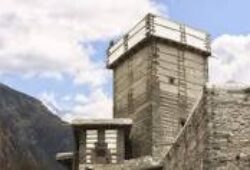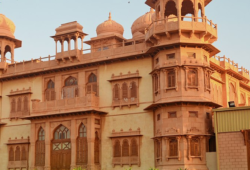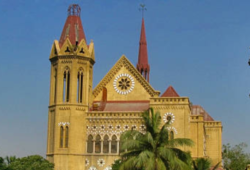BROGHIL VALLEY
 Posted On
Posted On
Located in the north very close to Afghanistan’s Wakhan Corridor, the Broghil Valley was previously only accessible via trek or horseback.
These days, the once-hidden spot can be reached via a treacherous jeep track yet only a handful of visitors still come during the few months when it’s not frozen under piles of snow.
It is currently debatable whether or not foreigners can visit Broghil.
But Pakistanis, please go and see the beauty! The valley is home to many alpine lakes, yaks and vast green pastures, all set against a dramatic mountainous backdrop that rises above 13,000 feet.
Additionally, a day trek from Lashkargaz, the last village in Broghil, takes you to Karambar Lake, one of the highest in the world!
Wakhan Corridor
The Broghil Valley borders Afghanistan’s Wakhan Corridor, which stretches between Tajikistan and Pakistan.
Located about 250 km from Chitral, Pakistan, Broghil Valley National Park shares common Wakhi cultural and linguistic traits as well as family ties across the Afghanistan-Pakistan border.
Surrounded by glaciers and mountains, the valley offers about 30 freshwater lakes in a breathtaking landscape that is very attractive to visitors.
However, the remote location of the Broghil Valley makes it one of the most inaccessible tourist destinations in Pakistan.
Many communities in Broghil do not have access to basic facilities and services.
Likewise, visitors to the region have long been limited by poor accessibility and a lack of accommodation and restaurant facilities.
Domestic
Remarkably, even this did not prevent the area from quickly gaining popularity among domestic and foreign tourists.
Celebrated by the locals, the annual Broghil festival attracts visitors from all over the country and abroad, but poses challenges due to lack of basic road and hospitality infrastructure.
Festival goers can look forward to attractions and activities such as yak polo and a woolen craft exhibition, all accompanied by traditional food and music.
PATRIP’s partner AKDN recognized the valuable potential for tourism and cross-border trade and decided to support the population by building tourism infrastructure and thus contribute tools for continuous economic and social development.
PATRIP
The PATRIP Foundation subsequently submitted a project concept note to the FFO, which approved funding in December 2015.
The project focused on enhancing the attractiveness of the Broghil Festival by providing basic facilities and supporting tourism and trade activities.
AKDN wanted to achieve this by building a well-equipped polo field with a capacity of more than 500 people and a community resource center adjacent to the polo field that provides a space for community interaction.
Along with the development of physical infrastructure, the project also focused on building local capacity and skills and helped people to form local organizations.
For example, the construction of five guesthouses to facilitate visitors and vocational training for women in woolen products was developed to improve the overall livelihood of the local community and promote its cultural heritage.
The goal of the project was to improve the socio-economic conditions of local residents by using the potential of tourism and at the same time support legal cross-border trade, which contributes to the stability of the region.
The project ensured the maximum participation of local communities in the implementation of the construction. activities.
Locally available building materials were preferred to minimize the negative impact on the environment. During the process, AKDN was confronted with many problems due to the remoteness of the Broghil area, which has no established markets even for trivial construction materials.
It was therefore necessary to work in close partnership with local communities through village organisations, women’s organizations and local support organisations.
Sources: wander-lush.org | patrip.org


